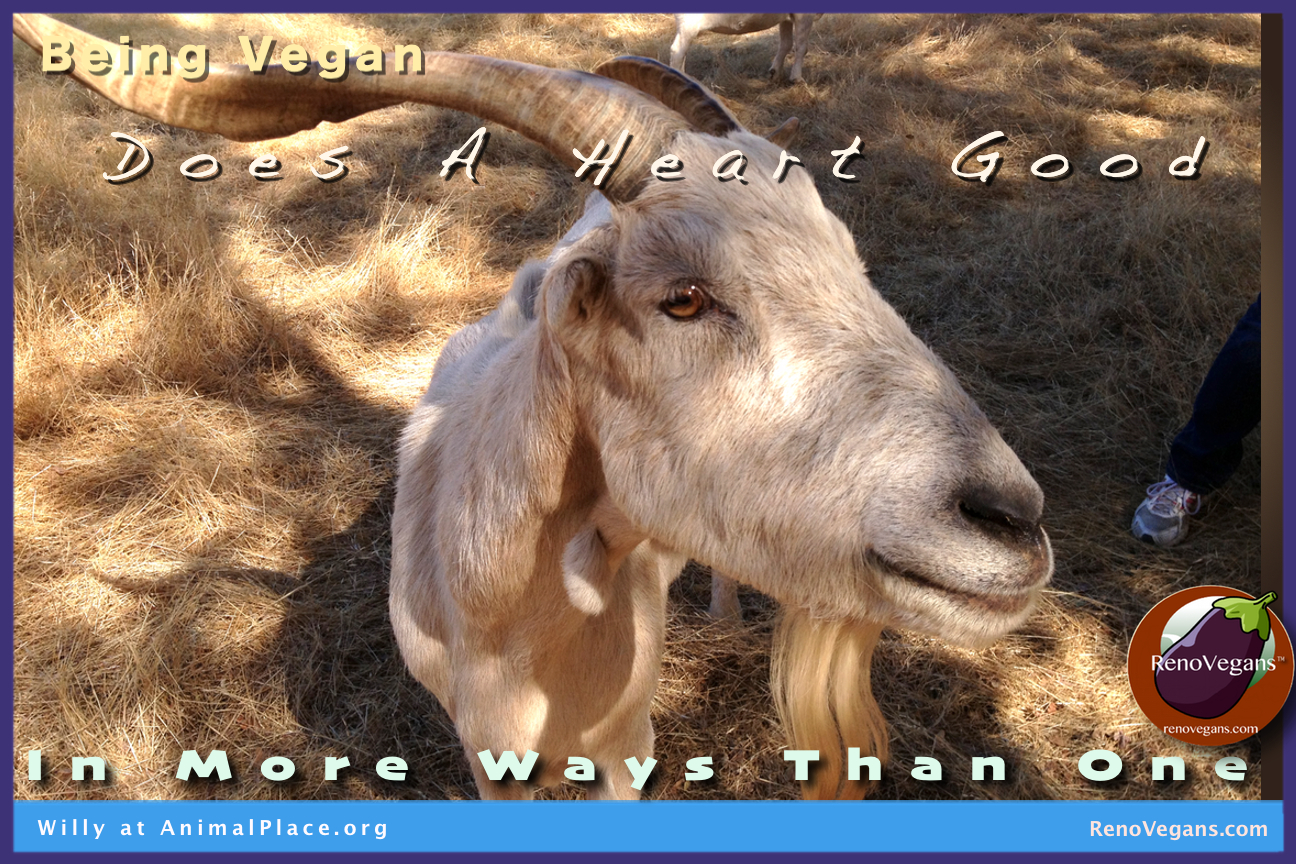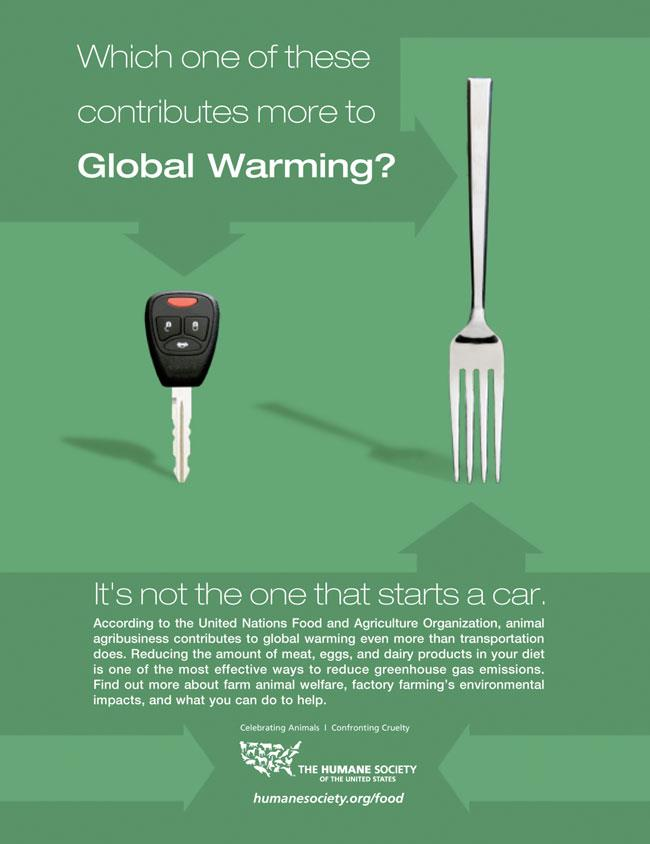 Reasons to Go Vegan #5: The Planet
Reasons to Go Vegan #5: The Planet
 The Planet
The Planet
 It's not a requirement to eat animals, we just choose to do it, so it becomes a moral choice and one that is having a huge impact on the planet, using up resources and destroying the biosphere
It's not a requirement to eat animals, we just choose to do it, so it becomes a moral choice and one that is having a huge impact on the planet, using up resources and destroying the biosphere
—James Cameron
 A change of diet might not just be good for our ever larger bellies - it might be the best way for us to save our valuable water resources too.
A change of diet might not just be good for our ever larger bellies - it might be the best way for us to save our valuable water resources too.
—Forbes Magazine
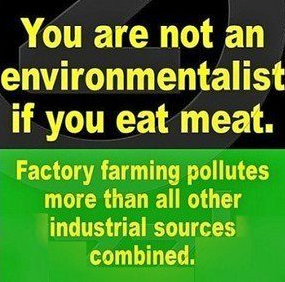
-
Western Diet Unsustainable for Planet, Physicians Committee for Responsible Medicine, 8/2013
 The more animal products people consume, the less likely we are to feed future generations, according to a new study from the University of Minnesota?s Institute on the Environment. Globally, meat and dairy consumption is expected to increase by 68 and 57 percent, respectively, by 2030. Increased demand for animal products stems not only from population growth, but from increasing affluence among the world?s population, which has shifted from grain-based diets to animal-based diets (meat, dairy products, and eggs).
The more animal products people consume, the less likely we are to feed future generations, according to a new study from the University of Minnesota?s Institute on the Environment. Globally, meat and dairy consumption is expected to increase by 68 and 57 percent, respectively, by 2030. Increased demand for animal products stems not only from population growth, but from increasing affluence among the world?s population, which has shifted from grain-based diets to animal-based diets (meat, dairy products, and eggs).
Production of animal products requires more land and resources than plant-based foods, and now 75 percent of all agricultural land is used for animal production. The negative consequences of consuming more animal products affect the environment and future food availability, as well as world health. Greater animal product consumption is associated with increased risk for heart disease, diabetes, and cancer. More… -
To feed 4 billion more, skip meat, milk and eggs, study says, NBC News, 8/2013
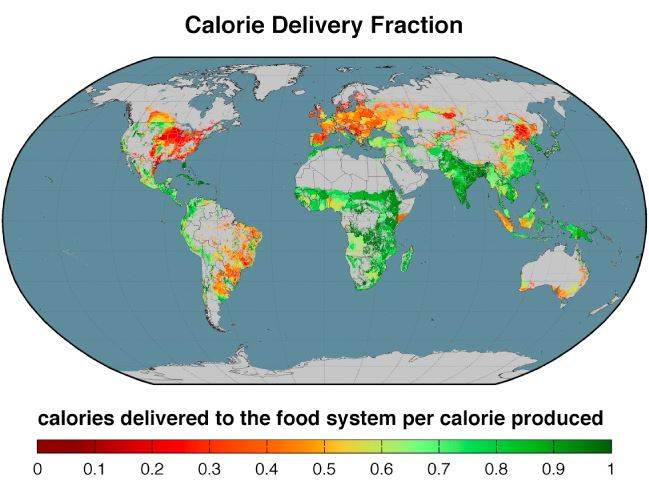 The lab-grown burger taste-tested Monday in London is billed as one way to avert a looming food crisis by freeing up the agricultural resources used to feed billions of cattle each year. Another way to avert the crisis is to stop eating animal products altogether, according to a recent study.
The lab-grown burger taste-tested Monday in London is billed as one way to avert a looming food crisis by freeing up the agricultural resources used to feed billions of cattle each year. Another way to avert the crisis is to stop eating animal products altogether, according to a recent study.
In fact, "we find that doing a complete radical shift away from grain-fed animals, and stop producing biofuels, that you can increase calorie availability enough for 4 billion people," Emily Cassidy, a researcher at the Institute on the Environment at the University of Minnesota, told NBC News. More… -
Limited Water Resources Might Mean Eating Less Meat, 8/2103
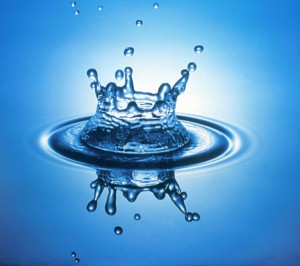 A new study has found that agriculture uses far more fresh water than any other human activity.
A new study has found that agriculture uses far more fresh water than any other human activity.
"Half of all cities with populations greater than 100,000 are located in water-scarce basins, and in these basins agricultural water consumption accounts for more than 90% of all freshwater depletions."
Aside from the land in California, most of the irrigated land in the U.S. then is used to produce feed crops like corn or soybeans, grains then fed to livestock or to humans as filler and sweetener.
It is because grain takes so much water to grow and that animals need to eat so much of it, that raising livestock "conventionally" - finishing them in feedlots or raising them in confinement - is our largest water suck.
A change of diet might not just be good for our ever larger bellies - it might be the best way for us to save our valuable water resources too. More… -
MPs urge UK to eat less meat to help global food supplies, BBC News, 6/2013
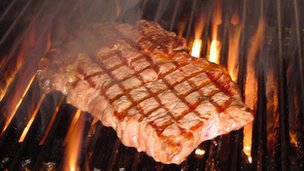 The International Development Committee said increased growing of grain to feed cattle was reducing the resources for nourishing people.
The International Development Committee said increased growing of grain to feed cattle was reducing the resources for nourishing people.
With the UK never more than a few days away from a significant food shortage, UK consumers should also be encouraged over time to reduce how often they eat meat.
The consequence of increasing demand for meat is the use of crops to feed livestock rather than humans. More… -
Biodiversity Loss Becoming Major Threat For Farmed Plants And Livestock Breeds
Zakri said there were 30,000 edible plants but that just 30 crops accounted for 95 percent of the energy in human food that is dominated by rice, wheat, maize, millet and sorghum.
He said it was "more important than ever to have a large genetic pool to enable organisms to withstand and adapt to new conditions." That would help to ensure food for a global population set to reach 9 billion by 2050 from 7 billion now. More… -
 Food shortages could turn most of the world vegetarian by 2050, warn leading scientists. —Daily Mail, UK.
Food shortages could turn most of the world vegetarian by 2050, warn leading scientists. —Daily Mail, UK.
"There will not be enough water available on current croplands to produce food for the expected 9 billion population in 2050 if we follow current trends and changes towards diets common in western nations," the report by Malik Falkenmark and colleagues at the Stockholm International Water Institute (SIWI) said.
-
Is the Livestock Industry Destroying the Planet? —Smithsonian Institution.
So, what can do we do? Easy: Opt out of the livestock industry. Far from depriving themselves of the greatest foods, vegetarians and vegans often discover that some of the very best edible things, prepared dishes and entire national cuisines are based on plants.
-
Greenhouse gases hit record high —BBC News, 11/2012.
The report estimates that carbon dioxide accounts for 85% of the "radiative forcing" that leads to global temperature rises.
Levels of methane, a more potent greenhouse gas, hit a new record at 1,813 parts per billion - more than two-and-a-half times the pre-industrial level. -
UN: Humanity Heading Down Unsustainable Path
A United Nations report warns that the earth's environmental systems "are being pushed towards their biophysical limits" and that sudden, irreversible and potentially catastrophic changes are looming.
The UN's Environment Program says that climate change, the depletion of the ozone layer, plummeting fish stocks and the mass extinction of animals are among the most worrisome environmental threats.
"If humanity does not urgently change its ways, several critical thresholds may be exceeded, beyond which abrupt and generally irreversible changes to the life-support functions of the planet could occur," a press release on the report states. -
Mass Extinction Underway
A majority of the nation's biologists are convinced that a "mass extinction" of plants and animals is underway that poses a major threat to humans in the next century, yet most Americans are only dimly aware of the problem, a poll says.
-
Save water - give up meat Scientists stress the world's population may need to adopt a plant-based diet to avert 'catastrophic' shortages, The Vancouver Sun, 3/22/2013.
Of the many activities individuals can modify to conserve water - from gardening to cleaning to washing - adjusting our diet carries the greatest potential impact. Globally, the livestock industry uses 50 per cent of the world's freshwater resources. If the current world population at 7 billion were to adopt North America's meat-based diet, it would require four planet earths to support this demand. With this impossibility, how will we produce enough food for everyone if meat-based diets prevail when we reach 9 billion in 2050?
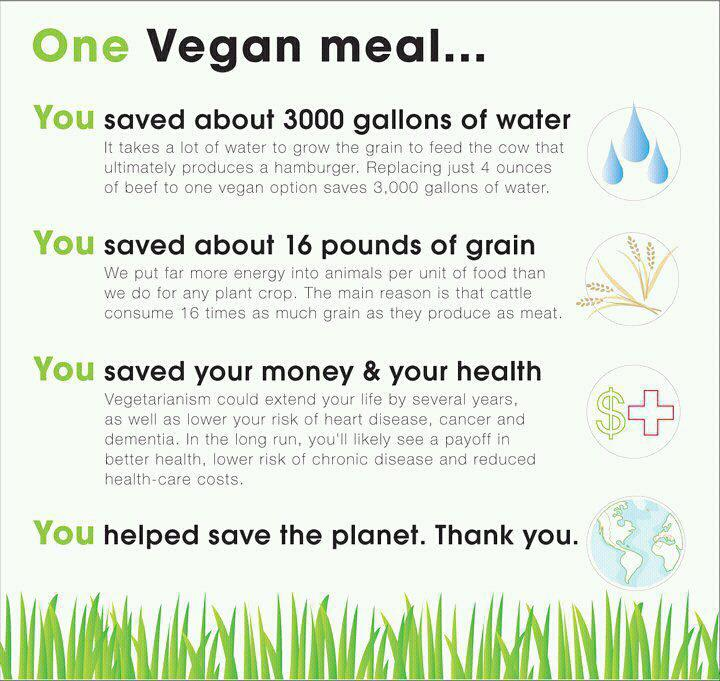
Still not convinced? Listen to these.
For further in depth data
See our Resources pages including books, films, local restaurants and more.
Top ↑

 Your Health
Your Health Physiology
Physiology Abuse/Cruelty
Abuse/Cruelty Dairy
Dairy Pollution
Pollution Veal
Veal Palm Oil
Palm Oil Global Warming
Global Warming Animal Acts
Animal Acts The Ocean
The Ocean Slaughter
Slaughter Wool
Wool Lab Animals
Lab Animals